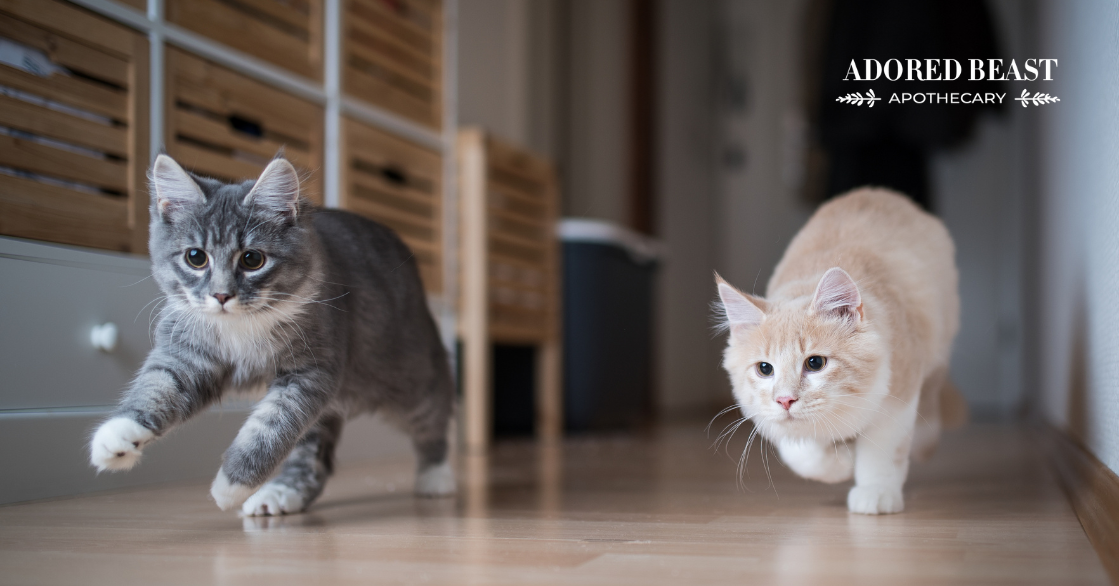Feeding fur and feathers: yay or nay? I’m sure by now you’ve seen the really hardcore raw feeders feeding fur and feathers, eyeballs, heads, furry feet, and other delicacies to their pets.
Does it gross you out? Or do you happily feed these things? Do you have a picky pet or a pet that will eat everything?
The truth is, in nature, carnivores will eat fur and feathers whenever they have a meal. And, yes, in a perfect world all of our pets would eat them too. There are health benefits to including them in your pet’s diet.
However, not all pets will be down with this addition. So let’s talk about it. There are so many opinions – let’s look at the bigger picture!
Feeding Fur and Feathers?
Ancestrally, we know that carnivorous animals eat fur and feathers when they consume prey. You only need watch a BBC Planet Earth episode or watch your cat catch a mouse or a bird to see this process in action. A “whole prey diet” technically needs to include feeding fur and feathers. While this may seem repulsive to us, it is often second nature to them….
So what are the benefits of feeding fur and feathers to your animal? Pets don’t get a ton of actual nutrition from fur and feathers since they are not enzymatically digestible, but they do provide important roughage, aka: insoluble fibre. This is the kind of fibre that does not get broken down in the digestive tract but it does help to give form to stools, provides a small amount of prebiotic benefit, and helps with GI motility (eg. keeps your pet regular!).
Dr. Sarah Depauw DVM of the Netherlands published a research paper in the Journal of Animal Sciences revealing that cheetahs (who are strict carnivores) are more likely to have healthy stools when the hides of prey (rabbits) are consumed rather than just meat, bone, and organs (beef). This shows the importance that insoluble fibre makes for obligate carnivores.
In a perfect world, we would feed a rotation of whole prey items that would complete the diet over a 1-2 week period. And, while some animals would happily participate in this delightful style of dining, others would rather not. Yes, I’m talking about those of you with picky pets. So if your pet is totally gung ho about eating fur and feathers and you can find healthy sources, go for it! It does have great benefits for the digestive tract. As much variety in prey items as possible is best from a variety of proteins. This will diversify the nutrient profile of your pet’s diet in ways you can’t do with supplementation.
For Picky Pets
As mentioned, some animals will be all for the fuz. Others, well, not so much.
To ensure a healthy microbiome for those pets who aren’t so excited about fur and feathers, here are some alternative insoluble fibre options that can help to balance to gut flora for fussy dogs:
- pureed raw root veggies (eg. beets, yams and turnips)
- spinach and other leafy greens
- coconut fibre (natural – unsweetened/no preservatives)
- almonds and walnuts
- freshly ground organic flax seed
Adding even a small amounts of these foods to your dog’s diet can make a big difference in contributing to gastrointestinal health.
For fussy cats who won’t eat veggies or seeds (and don’t need to), psyllium husks have been widely shown to help relieve diarrhea and constipation in house cats. Psyllium contains both soluble and insoluble fibre to help improve stool formation and regularity. 1/2 – 1 tsp daily is a great place to start. Cats also do very well with access to grass so if your cat lives inside, please allow them access to cat grass which is easy to buy and also grow indoors. They love it!
I hope this helps you navigate this sometimes confusing topic to find the best ways of helping your pet get a balanced and healthy raw food diet.












![[RESEARCH] Is Herbicide Safe for Dogs?](https://blog.adoredbeast.com/wp-content/uploads/2025/06/herbicides-safe-for-dogs-103x55.png)